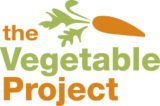We are pleased to note reaching a pair of milestones in the life of the Vegetable Project: We have incorporated, formally establishing our status under New York state law as a nonprofit organization. And the Internal Revenue Service has recognized our qualification for tax-exempt status.
In simplest terms, this means that you can now deduct contributions to the Vegetable Project from taxable income. Thus, we ask you to consider supporting our efforts financially. And we’re making it easy. Just click on the donate button at https://vegetableproject.org and put your contribution on your credit card.
Tax-exempt – or 501c3 – status should also make it easier to pursue grant opportunities, which we hope will be among the steps we take toward building a stronger organization that reaches more kids.
At the same time, our efforts toward these markers reflects our commitment to making a meaningful contribution to the health of kids in our community, some who have great needs, as we share with them the pleasures of learning and getting our hands dirty. We build school gardens. We bring planting into classrooms. We believe that we can complement the main school offering and offer an alternative approach, as may at times be useful, to admonitions to sit still, study hard and go to college.
More specifically, here’s how we put these thoughts in our certificate of incorporation and organization bylaws: “The mission of the Vegetable Project is to create hands-on learning opportunities for children in Albany with plants and especially plants that we eat, involving multiple fields, including science, nutrition, the environment, entrepreneurship, responsibility for the care of living things and tasting really fresh food. Furthermore, the Vegetable Project is especially committed to reaching children with the greatest needs, and using supportive, trust-building measures to do so.”
Many thanks for all of your support thus far and in the future.
—Bill Stoneman




One response to “Growing healthy kids as a tax-exempt nonprofit”